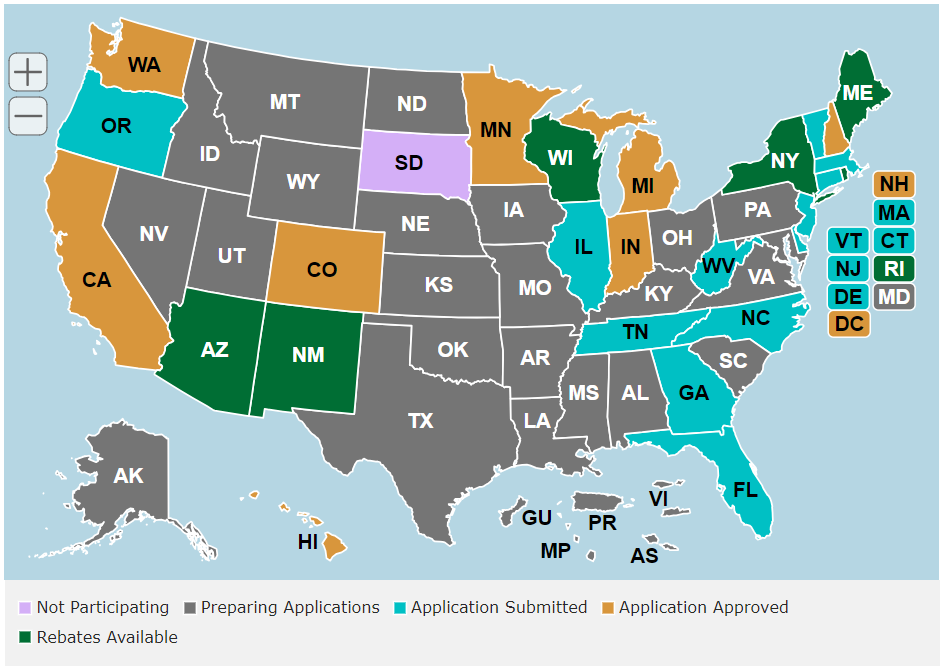
Joshua Haiar/South Dakota Searchlight
A rural advocacy group has turned in its petition signed by 904 South Dakotans urging Governor Kristi Noem to reconsider her decision to reject nearly $69 million in federal funds for home energy-efficiency rebates.
Noem is the only governor in the nation to reject participation. The petition urges action but is non-binding.
“We believe this is a misuse of taxpayer money and call on Gov. Noem to promptly seek an extension and apply for these programs on behalf of our state,” reads the petition from Dakota Rural Action, a grassroots organization focusing on family agriculture and conservation. “South Dakota deserves to benefit from our tax dollars.”
In its two-week petition effort, the organization gathered signatures from South Dakotans in 143 communities. The organization told South Dakota Searchlight the governor’s office has not responded. Noem’s office also did not immediately respond to a South Dakota Searchlight request for comment on the petition.
The Noem administration previously cited concerns about administrative burdens, limited staff capacity, and disagreements with federal policy as reasons for opting out of the Home Energy Rebates program.
Noem’s commissioner of the Bureau of Finance and Management, Jim Terwilliger, spoke for the administration during a July legislative budget committee meeting.
“We just don’t believe that it’s the right thing for South Dakota,” Terwilliger said.
The national Home Energy Rebates program is funded with $9 billion from the federal Inflation Reduction Act. The program provides rebates for energy-efficient home retrofits and high-efficiency electric appliances.
South Dakota’s allocation is $68.56 million, but the state did not indicate its intent to participate before an August deadline. The state previously passed up $1.8 million to help set up and administer the program.
